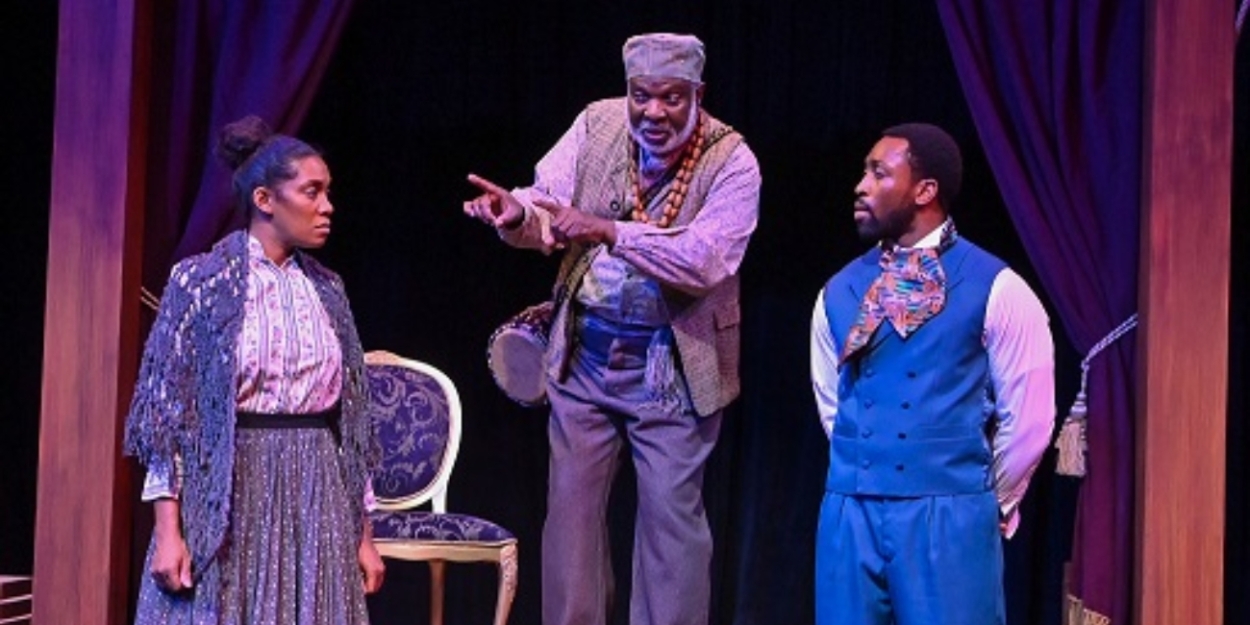Review: THE AFRICAN COMPANY PRESENTS RICHARD III at The Black Theatre Troupe
A vital and illuminating piece of theater that reaffirms the stage as a battleground for justice and representation.

Carlyle Brown’s THE AFRICAN COMPANY PRESENTS RICHARD III draws its power from an extraordinary yet often overlooked chapter in American theater history. In 1821, amid the hostile racial climate of antebellum New York, William Alexander Brown, a free Black man from the West Indies, founded America’s first Black theater company. Operating from the African Grove Theatre, a converted tea garden at 38 Thomas Street, Brown dared to stage classical works in direct competition with white theaters. His company’s audacious decision to mount Richard III - at the same time as a neighboring production featuring English tragedian Junius Brutus Booth -sparked a fierce confrontation with Stephen Price, the powerful owner of the Park Theatre.
Against this historical backdrop, Brown’s play emerges as both tribute and testimony, weaving Shakespeare’s verse with naturalistic dialogue to illuminate a battle for artistic legitimacy that still resonates today. The Black Theatre Troupe’s current production (running through February 23rd) brings this history vividly to life. The play demands an ensemble that can deliver both Shakespearean verse and contemporary dialogue with equal weight. When done well, the result can be electrifying - not just a reclamation of Shakespeare, but a defiant assertion of voice. Under Chanel Bragg’s inspired direction, this production meets the challenge.
The cast brings the historical figures of The African Company into sharp relief. Ken Love is magnetic as Papa Shakespeare, the company’s spiritual anchor and muse, whose drum-beating invocations blend ritual and rebellion. Roosevelt Watts Jr. commands attention as William Alexander Brown, the visionary determined to carve out space for Black artists. Paul Perkins imbues James Hewlett (the first Black actor to play Richard III on an American stage) with both ambition and political awareness.
Cynitta Agent delivers a powerful performance as Ann, the company’s leading actress, whose decision to step back from the stage is an act of defiance rather than fear. As the company faces mounting threats from Price and the authorities, her refusal to perform asserts her agency on her own terms - a moment that resonates as both personal and political.
Shondra Royall provides a lively counterpoint as Sarah, a seamstress who works for both Black and white theater companies. Her unique position allows her to navigate both worlds, reflecting the complex reality of Black artists and artisans in 19th-century America.
The forces of oppression are embodied with chilling precision by CJ Mascerelli as Stephen Price, whose calculated maneuvering seeks to crush The African Company, and Derek Neumann as a solicitous constable who enforces Price’s will through intimidation and legal harassment.
The brilliance of Brown’s script lies in how it seamlessly integrates Shakespeare’s text with the struggles of The African Company. When these actors rehearse Richard III, they are not merely performing Shakespeare; they are claiming him.
More than just a historical drama, THE AFRICAN COMPANY PRESENTS RICHARD III is a testament to the power of art as resistance. The company’s insistence on their right to perform, their distinctive performance style, and their radical decision to admit both Black and white audiences (albeit segregated) challenged the racial hierarchies of antebellum theater. Under Bragg’s direction, these themes feel as urgent today as they did two centuries ago.
The African Company was not simply replicating white productions; they were reinterpreting Shakespeare through their own cultural lens. Their repertoire extended beyond the Bard, staging European works and original plays that reflected Black identity in early America. But their success made them a target. Stephen Price and other white theater owners saw them as a threat, responding with harassment, arrests, and police raids. Though the company was ultimately forced to close, their legacy endured. Brown’s play ensures that their story is no longer buried history but a living testament to their integrity and steadfastness.
The play’s climactic confrontations gain additional weight when understood in context. The African Company’s defiance of authority - its determination to perform despite suppression - was an act of radical resistance. That same spirit pulses through this production, reinforcing the idea that the right to tell one’s own stories remains as vital today as it was then.
By taking on this work, The Black Theatre Troupe is doing more than staging a play; they are participating in a legacy of artistic defiance and cultural reclamation. Ultimately, THE AFRICAN COMPANY PRESENTS RICHARD III is a triumph: a vital and illuminating piece of theater that reaffirms the stage as a battleground for justice and representation.
The production runs through February 23rd at:
Helen K. Mason Performing Arts Center ~ 1333 E. Washington Street, Phoenix, AZ
The Black Theatre Troupe ~ https://www.blacktheatretroupe.org/ ~ boxoffice@blacktheatretroupe.org ~ 602-258-8128
Photo credit to Laura Durant ~ L to R: Cynnita Agent, Ken Love, Paul Perkins
Reader Reviews

Videos

